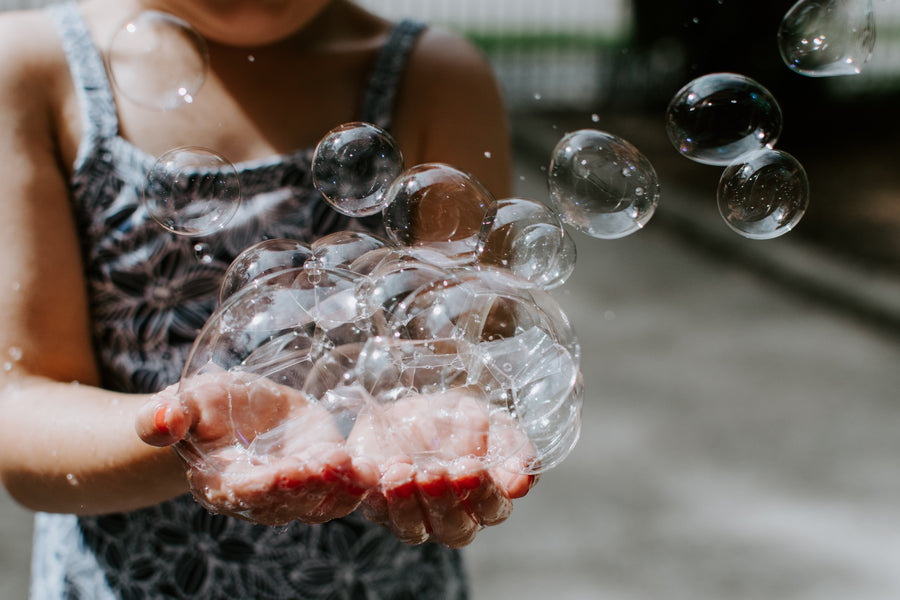Your cart is empty.
Let's change that. Start Shopping
Let's change that. Start Shopping
Oct 7, 2020

When we tell people we make natural household cleaning products with soap, not detergent, we’ve gotten our fair share of confused looks and questions. We get it! Soap has developed a reputation over the years, and while the history of soap reveals its age-old use as a household cleaner, the modern understanding of soap is certainly influenced by a few misconceptions.
When many folks think soap, they think about the bar soap at the side of the sink. But soap can do so much more than clean our hands (although it’s pretty good at that, too). Both solid and liquid soap have a huge variety of uses, and our modern soap scientists have harnessed the simple ingredients and simple chemistry of natural soap to make a huge range of convenient sprays, cleaning powders, natural stain removers, and foaming cleaners that clean as well as anything else on the shelf, without using industrial synthetic detergents made with petrochemicals. (P.S. Unfortunately, many of the bar soaps you’re familiar with—think Dove and Ivory—contain synthetic detergents just like household cleaners. And that’s not right to us!)
Because it works! We believe that using an industrial cleaner made with petroleum when a soap-based cleaner can do the job just as well just doesn’t make sense. So when we figured out how to make a laundry soap powder that works better than the leading conventional detergent according to third-party testing, we knew it was time for natural cleaning to move away from its dependence on fossil fuels into a new era of cleaner cleaning.
If you’ve been dried out by soap in the past, we challenge you to try our moisturizing, foaming castile hand soap made from coconut oil and olive oil. It foams to a rich, soft lather that’s naturally powerful and gentle on skin—many of our fans report their hands have never been softer.
We hear you, and we’re all for gentle formulas that work as well as the harsher stuff. Lye (aka sodium hydroxide) is a naturally occurring strong alkali historically found in wood ashes and now derived from salt, and it can certainly be caustic in its natural state. But the process of soapmaking—called saponification—totally converts all of the lye and natural oils in the formula into soap, leaving none in the finished product. We’re fascinated by this soapmaking magic, and encourage you to learn more. There are many tutorials available for household soapmaking you can do in your own kitchen.
You bet it is, and we’re proud to be using the timeless art of soapmaking in modern ways to make products unlike any others. Synthetic detergents have only been around since the middle of the twentieth century, and early synthetic detergents were pulled from production when they were revealed to be carcinogenic, hormone disruptive, and downright terrible for human health and the health of the planet. Those formulas have since been replaced by shiny new chemical creations, and while some of them may prove to be safe, we simply don’t know enough about their effects on human health. And we do know they rely on petrochemicals which has undeniable environmental consequences. Yes, we’re proud to be old fashioned, because it turns out the time-honed soapmaking tradition has so much more to offer us without the downsides of detergent.
At Ingredients Matter, we know that soap is way more than a bar in the shower—it’s the original household cleaner and can be used pretty much everywhere a detergent is used, without the petrochemicals and harsh surfactants. Shop our soap-based, whole-house cleaning solutions and see just how effective soap can be in your home.